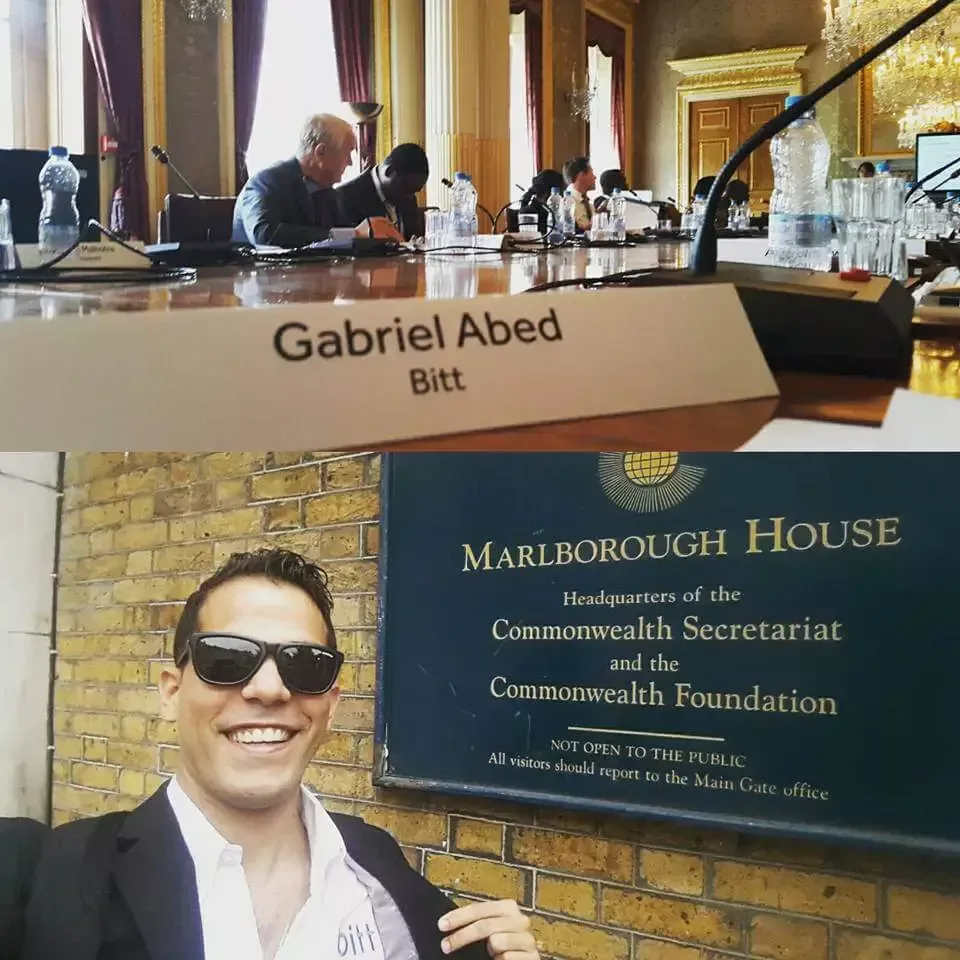Bitt Speaks and the Commonwealth Secretariat Listens

When the Commonwealth Secretariat and its 53 member states meet this week to craft the legislative framework of digital currencies such as Bitcoin, Barbados will be represented by Gabriel Abed, CEO and Co-Founder of Bitt, the region’s premier asset exchange company.
“I have been selected as one of the experts in the field to adequately address regulation and security concerns of math based currencies and help governments understand the importance of decentralised solutions,” explained Abed. Abed is well placed to add his voice, given his company’s focus on security and providing access to emerging and developing markets by utilising block chain technologies such as Bitcoin.
The August 24-26, 2015 meeting of the Virtual Currencies Working Group (VCWG) is touted to be the first ever discussion at such a high level with an extensive global approach.
“I proudly represent Bitt.com, Barbados and the entire Bitcoin community when facing down the barrel of government bodies on the stance they should take. My stance is to not regulate block-chain technologies and do not hinder innovation,” Abed added.
When the Commonwealth Secretariat and its 53 member states meet this week to craft the legislative framework of digital currencies such as Bitcoin, Barbados will be represented by Gabriel Abed, CEO and Co-Founder of Bitt, the region’s premier asset exchange company.
“I have been selected as one of the experts in the field to adequately address regulation and security concerns of math based currencies and help governments understand the importance of decentralised solutions,” explained Abed. Abed is well placed to add his voice, given his company’s focus on security and providing access to emerging and developing markets by utilising block chain technologies such as Bitcoin.
The August 24-26, 2015 meeting of the Virtual Currencies Working Group (VCWG) is touted to be the first ever discussion at such a high level with an extensive global approach.
“I proudly represent Bitt.com, Barbados and the entire Bitcoin community when facing down the barrel of government bodies on the stance they should take. My stance is to not regulate block-chain technologies and do not hinder innovation,” Abed added.

The Commonwealth’s Roundtable initial determinations regarding the benefits of virtual currencies concluded that “despite the clear dangers of virtual currencies, significant benefits could accrue from them to citizens of member states, particularly in providing low-cost remittance and foreign exchange services, access to new financial products and as a driver of innovation in the online economy in the form of phenomena such as micro-tipping. There are clear linkages to economic development.”
“As such it is necessary to also consider that virtual currencies may be able to play a valuable role in the monetary and economic systems of some member states,” it has stated.
At their 2013 meeting, Commonwealth Heads of Government expressed their unwavering commitment to fight money laundering and the financing of terrorism. Specifically the Heads noted “the need for concerted efforts aimed at ensuring safe, secure, cost-effective and accessible channels for legitimate money transfer operations worldwide so as to ensure that this critical lifeline to developing countries is not compromised.” A major obstacle to achieving this aim is the increasing threat of cybercrime. Recognising this, the Heads of Government mandated the Commonwealth Secretariat (the ‘Secretariat’) to encourage “collaboration by member states with relevant international organisations and agencies, to develop appropriate programmes of technical assistance, in order to enhance capacity in resource constrained settings.”
In pursuance of these mandates the Secretariat convened a Roundtable on Virtual Currencies with the aims of:
- Raising awareness of emerging trends in the use of virtual currencies among Commonwealth member states and to sensitizing states on the need to follow such developments;
- Determining any risks that these trends pose, with a focus on the potential of virtual currencies to be associated with criminal offences, including the financing of terrorism; to enable Commonwealth member states to acquire an overview of existing responses and possible new responses to address any harmful impact; and to set milestones for future action.
The result of the Roundtable was the establishment of the Working Group (which Abed is a member of) for the purpose of delivering both the Report and the Technical Guidance.
In working to deliver these outcomes the following issues will be explored by the Working Group:
- To gain an understanding of the use of virtual currencies within the Commonwealth;
- To determine any risks that these uses pose, with a focus on the potential of virtual currencies to be associated with criminal offences, including the financing of terrorism;
- To enable Commonwealth member states to acquire an overview of existing responses and possible new responses to address any harmful impact;
- To determine the opportunities that the use of virtual currencies present for the Commonwealth;
- To determine the possible indicators of the use of virtual currencies in a given jurisdiction; and
- To reach a consensus on a policy approach which can be recommended to the rest of the Commonwealth.
In the long term, the aim is :
- To consider the reach, strengths and weaknesses of existing national regulatory and criminal law frameworks, if any, in response to the development of virtual currencies;
- To determine appropriate policy thrust required by Commonwealth member states in addressing the phenomenon of virtual currencies.
- To plan a way forward for the development of these resources and solutions including the allocation of responsibility for delivering aspects of this work.
To help meet these objectives, the Secretariat has prepared a skeleton report for the Group’s consideration.



